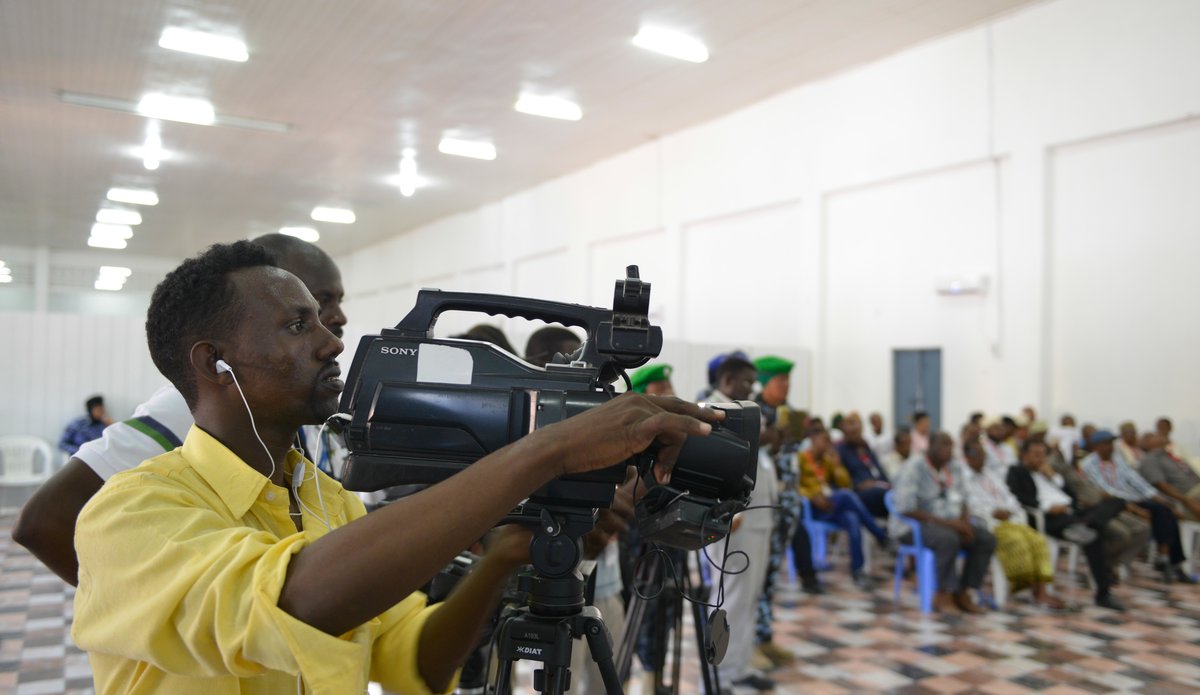Some journalists steer clear of controversy in coverage of Somalia’s electoral process
Some Somali journalists admit they have practiced self-censorship in reporting the ongoing electoral process in one of the world’s most dangerous countries for members of the news media.
“We usually refrain from news that brings us threats or intimidation,” said Ali Abdirahman Adan, a journalist with state-owned Radio Mogadishu and Somali National Television who is based in Baidoa, the interim administrative capital of South West state.
“We also do not report controversial stories that will bring challenges to our work,” he added.
The resort to self-censorship reflects the harsh realities facing the news media in Somalia, where over 30 journalists have been killed since August 2012.
A report issued last September by the United Nations Assistance Mission in Somalia (UNSOM) and the Office of the UN High Commissioner on Human Rights cited killings, arrests, intimidation, harassment, the confiscation of equipment, the blocking of websites and closure of critical media outlets as among the worst hazards menacing journalists and media practitioners in the country.
The report named federal and state-level security forces, including the Somali National Army, the Somali Police Force and the National Intelligence and Security Agency, as the main perpetrators of abuses against media workers.
But the electoral process period has been a relatively quiet time for journalists, despite the highly charged political environment in which some aspiring candidates have gone to great lengths to discredit their opponents.
For most Somali journalists, this year’s electoral process represents their first ever encounter with election coverage. Some expressed satisfaction with the degree of access they have been given to polling centres across the country by electoral officials.
“There were designated areas for journalists,” said Mr. Adan. “After the voting exercise concluded, an electoral officer would call us and brief us on the voting exercise, on who won, the number of votes and name of the candidate who has been declared the winner.”
Some journalists complained about the tight security measures in effect at some electoral centres and areas near the polling sites.
“The challenge is that the roads are normally closed (for security reasons) and there is no public transport, so we have to move on foot for long distances,” explained Mohamed Musse Mohamed, a reporter with Bulsho TV in Mogadishu.
Others who attended elections reporting workshops prior to the start of the parliamentary voting cited the training as useful preparation for covering the balloting.
“I have gained a lot of experience reporting on this electoral process,” said Dalsan Radio journalist Farhiyo Mohamed Hussein. “It is invaluable for me, being able to report from the polling centres and do it well,” said Dalsan Radio journalist Farhiyo Mohamed Hussein.
A series of six elections reporting workshops was organised and hosted by UNSOM in August and September with support in some instances from regional governments and organizations of local journalists like the Media Association of Puntland.
In its 2016 annual report, the New York-based Committee to Protect Journalists put Somalia at the top of its Global Impunity Index for the second consecutive year. The index ranks countries on the basis of their failure to hold accountable the killers of journalists.
Yet despite the very real dangers facing media workers in Somalia, journalists expressed their intention to continue practicing their chosen profession for the foreseeable future.
 UN
UN





